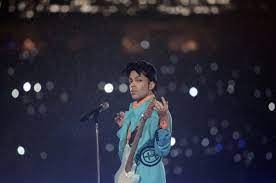
Monitoring Desk
DUBAI: Ali Gatie is in reflective mood, and it’s easy to see why. The Iraqi-Canadian singer, born in Yemen and raised in Abu Dhabi before emigrating to Toronto, Canada, is about to come full circle, performing as a marquee name at the first Iraqi-Canadian singer Ali Gatie gears up to perform at Wireless Festival Middle East, 20 years after he and his family last set foot in the UAE’s capital city.
“I keep thinking back to the kid I was when I lived here. The kid who would sing along with Arabic songs on the radio; who loved to sing but never dreamed he would become a singer,” Gatie tells Arab News.
“You forget so much about how you grew up, but I’ve never forgotten Abu Dhabi. I’ve never forgotten where I came from,” he continues. “I’ve been spending all week trying to figure out how this makes me feel, but I don’t know how to process it other than looking at my younger self and just telling myself how proud I am of me, you know? It’s crazy.”
There’s plenty to be proud of. The Ali Gatie of 2023 is not just a singer on a huge festival line-up, he’s a viral phenomenon; his 2019 breakout song “It’s You” has been streamed well over a billion times, not to mention its continued popularity on TikTok. With nearly 10 million monthly listeners on Spotify, Gatie has followed that first big splash with hit after hit, honing an R&B pop sound full of soulful yearning and heartache that has made him Gen Z’s go-to crooner.
There was a time, though, when Gatie had to hide his own desire to express so much emotion in song.
“I remember when Ed Sheeran’s song ‘The A Team’ first started to blow up, I thought it was so cool,” he says. “But my friends were a bunch of immigrants who thought it wasn’t cool at all. They liked T.I., 50 cent and Lil Wayne. In Toronto, it was all hip-hop and rap. Ed Sheeran became my little secret. I listened on the low, not telling my friends that I was doing a deep dive on this style of music that really blew me away.”
While his nights may have been filled with Ed Sheeran, his days were still full of hip-hop, a developing skill much more acceptable to his social circle.
“When I was 17, I would freestyle at school, while people would play beats and throw me words. It was a good way to make friends, honestly — by rapping, I found I could really impress people, and people wanted to join in with me,” says Gatie.
Gatie would sit in his friends’ cars as they searched for beats online, recording voice notes on his phone as he freestyled over them.
“Eventually, a friend of mine said I should go to the studio and try this, saying he knew a place we could pay only $50 per hour. I booked two hours with all the money I’d saved up from working at McDonald’s, and that first session was so fun,” he says. “It became like an addiction — I’d make money just to go to the studio and make songs. I released my first song — I ended up deleting it later, but even the little attention it got made me say, ‘This is cool. People are listening. I should keep going.’”
Between 2016 and 2017, Gatie released around 15 rap tracks, without paying much attention to developing his own sound. But when he started university, he realized that he was now headed in a completely different direction, one in which music could be only a hobby. If this was something he was to truly pursue, he would have to do so with more intention.
“I started paying more attention to what I was doing, and I realized I had to pursue the sound I’d always been hesitant to pursue,” he says. “I had to transition from trying to be a rapper, which was cool in Toronto, to becoming a singer, because I knew I would actually be better at that. By the end of 2017, I’d made the call. I knew deep down I’d always wanted to be a singer, and I never really wanted to be a rapper. I stopped focusing on what sound I thought would fit in with my group or in my city, and instead focusing on what I wanted to do. I thought, ‘How do I create my own sound?’ And by the beginning of 2018, I released the first track with that sound — ‘Can’t Lie.’”
Soon, Gatie wasn’t just focused on his sound, but on his message. In May of that year, Gatie wrote a song called “Losing You,” — and for the first time he started to think deeply about the lyrics he was writing.
“I was, like, ‘Let me write something meaningful, take it from my own experiences.’ But it started developing more into a story I was telling — something outside myself. And even though it didn’t go viral, people started asking me about it, telling me they’d connected to it. I realized I’d written a story — and then I wondered if I could beat it. I started writing better stories — getting more sophisticated — inspired by movies I’d seen or something friends had gone through, or writing a response to another song I’d connected with. Sometimes, I didn’t know where it would come from — some would say it came from god,” says Gatie.
At home, his parents saw all this as no more than a hobby — that he was deluding himself to think it could be anything more. When he finally told them he planned to drop out of university and pursue it full-time, Gatie says, his father told him bluntly he would never succeed, and would likely end up homeless, as he wouldn’t be allowed back home.
Undeterred, Gatie pressed on, and quickly proved he had what it took. Within months, his songs started picking up more and more steam, and soon he was releasing one platinum record after another.
Five years later, as the 25-year-old singer heads back to Abu Dhabi, he’s finally reaching the heights he once dreamed of — heights that, because of his background, he was told would never be possible.
“I used to tell my parents, ‘I can do this.’ And they’d say, ‘How many other Muslim Arab kids are doing this and succeeding?’ I was, like, ‘No one.’ They said, ‘Well, why do you think you could?’
“The best part of playing this festival in Abu Dhabi is the fact there’s going to be a kid in that crowd that wants to make music and can use me as an example to his parents. They can go home that night and say, ‘This kid started from nothing. He’s Arab just like me, or he’s an immigrant just like me. And he just played a huge festival with A-list celebrities,’” Gatie says. “I hope there’s one kid that realizes that this could be them next year.”








